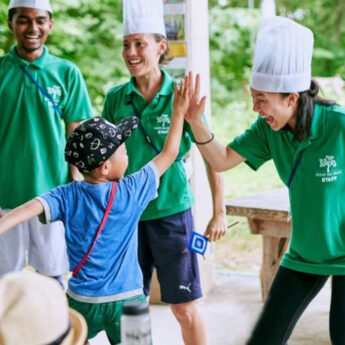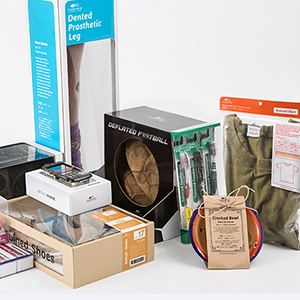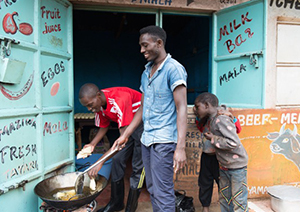Pharmaceuticals firm partners with non-profit on global healthcare initiative
• GSK to match funds raised; goal £1mn/year
• Simple yet effective innovations rewarded
• Project link with Tohoku recovery
GlaxoSmithKline (GSK) plc has teamed up with non-profit organisation Save the Children to help 1mn of the world’s poorest youngsters survive by improving their access to healthcare and nutrition, as well as by investing in healthcare workers.
Announced in London in May, the ambitious new partnership aspires to maximise innovations for tackling child mortality. An estimated 6.9mn children under the age of five die every year from preventable diseases.
The collaboration will take many forms.
For example, Save the Children will help GSK research and develop child-friendly medicines and be given a seat on a new paediatric research-and-development board.
The two organisations will work closely to identify ways of ensuring the widest possible access to medicine throughout the developing world.
A key feature of the partnership is inspiring GSK’s global workforce to help raise awareness through volunteering and fundraising. The goal is to raise £1mn a year, which will be matched by GSK.
The initiative is being strongly supported by the Japan unit of the Brentford-based global leader in pharmaceutical products, biologics and vaccines.
GSK K.K. will also support the participation of children in the reconstruction of communities in north-eastern Japan that were devastated by the March 2011 earthquake and tsunami.
The visionary Speaking Out From Tohoku (SOFT) project is designed to incorporate the opinions of children into recovery plans at all levels, from plans within individual communities to national government programmes.
“To raise funds to support the Save the Children project, GSK Japan formed a task force that liaises with other divisions and organises annual internal events, such as plenary meetings and events involving employees’ families”, said Mayuko Hashimoto, coordinator of GSK’s Orange United project in Japan.
“At these events, we sell products made by developmentally challenged people, such as confectionary and handicrafts, in collaboration with various divisions, such as production, research and development, and our sales force”, Hashimoto said.
“These goods are then sold to our employees at an additional margin and donated to children who have been affected by the disaster. This means that we are able to contribute to the people who made the items and the children”.
Philippe Fauchet, president of GSK Japan, expressed his enthusiasm for the new partnership.
“We are very proud that our team has proposed a way to participate in the global programme and also connect to the recovery effort in Tohoku simultaneously”, Fauchet said.
“In addition to our other on-going programmes, we wish to continue to revise and improve our approaches to find ways of supporting Japanese people in need, with a specific focus on children”.
The first joint initiative to be launched by GSK and the charity is the Healthcare Innovation Award.
For the award, organisations from across the developing world have been asked to nominate examples of innovative healthcare approaches that have resulted in tangible improvement in survival rates among children under the age of five.
Projects nominated should be sustainable and have the potential to be replicated and scaled-up.
The judging panel is jointly chaired by Sir Andrew Witty, chief executive officer of GSK, and Justin Forsyth, head of Save the Children.
A prize of $250,000 will be awarded to the most impressive project. An additional $750,000 is being provided for runners-up.
“Often the best solutions to a particular challenge come from those living and working closest to it”, Witty said. “We recognise this and we are committed to supporting those working in the world’s poorest countries to improve health outcomes”.
“This award will identify the most effective ideas being put into practice in developing countries and, by providing much-needed funding, will enable these innovations to be scaled-up to reduce childhood deaths, and will inspire others in the process”, he said.
The impact of simple, low-cost innovations can be illustrated through the example of Kangaroo Mother Care, which has been effective in reducing the number of infant deaths in developing countries.
Originally developed by Colombian paediatrician Edgar Rey, Kangaroo Mother Care is a simple technique that promotes early skin-to-skin contact between mothers and their premature and newborn babies.
Mothers act as human incubators, keeping their babies warm and regulating their heartbeats.
This technique is now widely promoted by Save the Children and other healthcare organisations.
GSK has a long tradition of engaging with non-profits, including initiatives to develop and deliver groundbreaking vaccines against polio, fight against malaria, eliminate lymphatic filariasis and reduce infant deaths.






